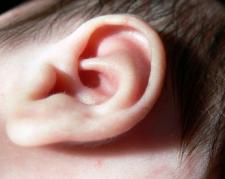Cochlear implants boosted by gene therapy plus tiny LEDs
By Clare Wilson,
New Scientist
| 07. 07. 2016
Can light restore hearing in deaf people? Researchers hope that through optogenetics, they can use micro-LED lights to make better cochlear implants than those used by deaf people today.
Standard cochlear implants function by stimulating nerves using an electrode placed inside the cochlea, a tiny spiral cavity inside the ear. These work, but sounds are distorted and muffled.
That’s because people who aren’t deaf can normally discriminate between about 2000 different sound frequencies, whereas cochlear implants allow only about a dozen to be distinguished. As a result, these implants make human speech sound a bit like that of a dalek, and music can be unpleasant.
Continue reading on New Scientist
Image via Flickr/Jessica Merz
Related Articles
By David Jensen, California Stem Cell Report | 02.10.2026
Touchy issues involving accusations that California’s $12 billion gene and stem cell research agency is pushing aside “good science” in favor of new priorities and preferences will be aired again in late March at a public meeting in Sacramento.
The...
By Teddy Rosenbluth, The New York Times | 02.09.2026
Dr. Mehmet Oz has urged Americans to get vaccinated against measles, one of the strongest endorsements of the vaccine yet from a top health official in the Trump administration, which has repeatedly undermined confidence in vaccine safety.
Dr. Oz, the...
By Alex Polyakov, The Conversation | 02.09.2026
Prospective parents are being marketed genetic tests that claim to predict which IVF embryo will grow into the tallest, smartest or healthiest child.
But these tests cannot deliver what they promise. The benefits are likely minimal, while the risks to...
By Roni Caryn Rabin, The New York Times | 01.22.2026
The National Institutes of Health said on Thursday it is ending support for all research that makes use of human fetal tissue, eliminating funding for projects both within and outside of the agency.
A ban instituted in June 2019 by...




